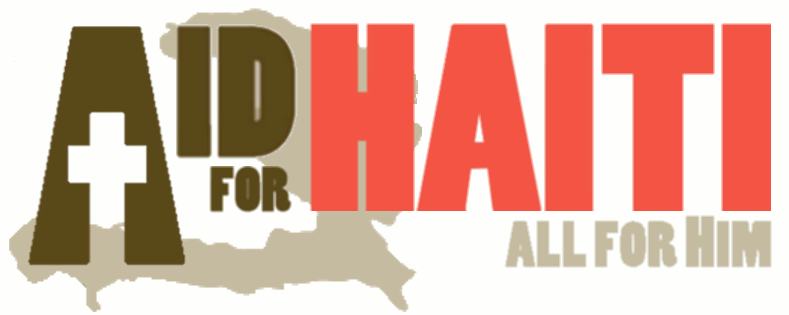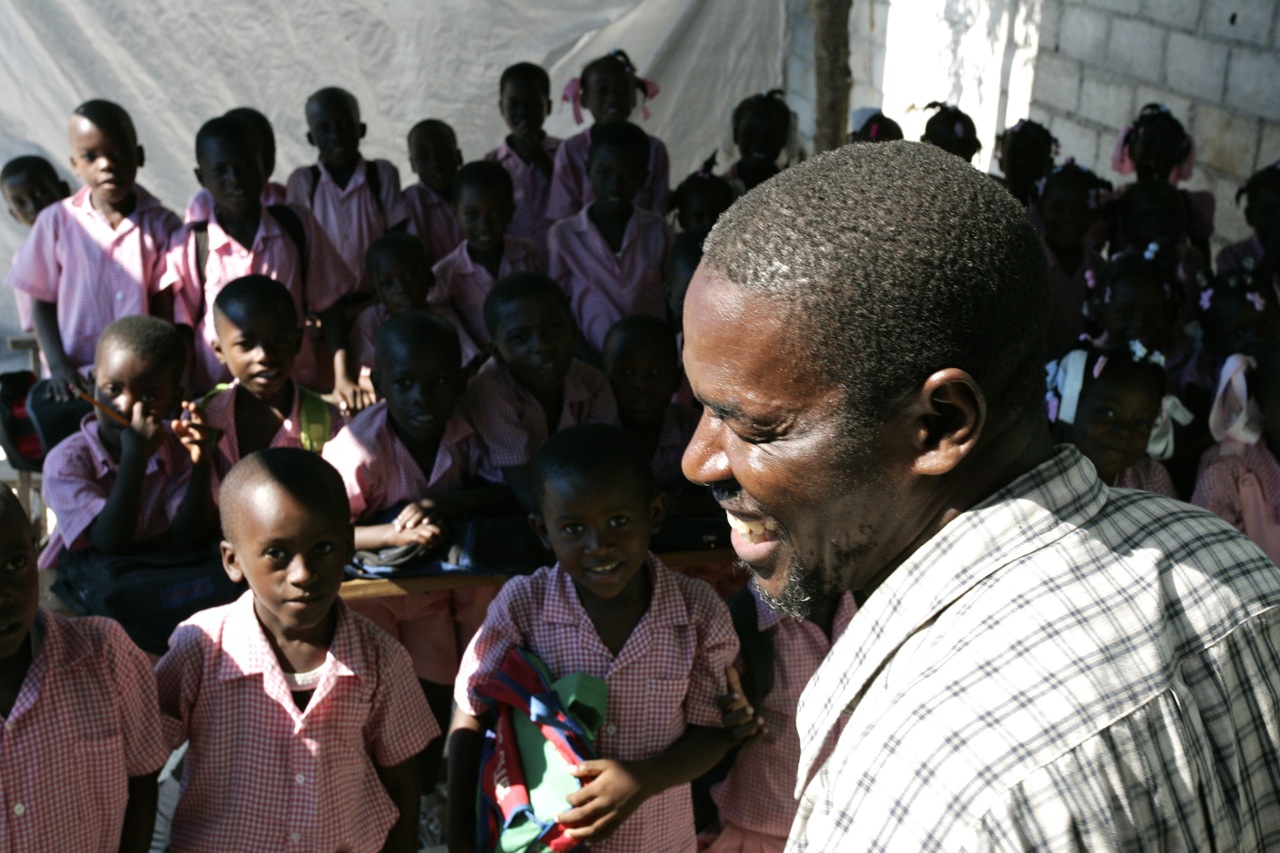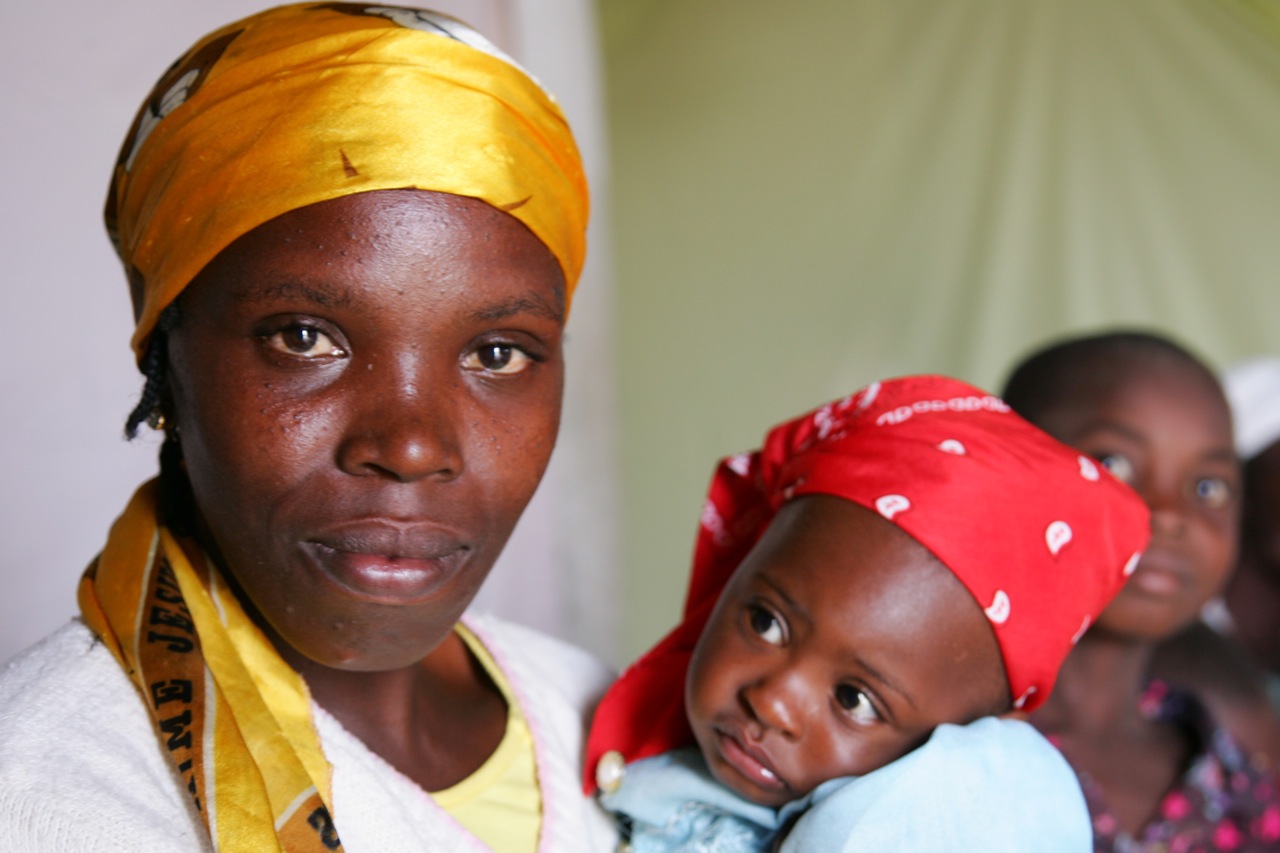Our long time friend and member of the AFH Board in Haiti, Pastor Bruce’ s work in Fon Doux. Please remember him in prayer as his village will soon be hit with the hurricane.
A vision for the future: Haitian community offers an example
FOND DOUX, Haiti – What a difference a suitcase full of seeds can make.
It was just after Hurricane Gustave ravaged Haiti in August 2008 that Clayton resident Helen Little – who has been doing humanitarian work in the impoverished Caribbean nation since the mid-1980s – sent the suitcase to Brucely Delma, a pastor she had come to know in the community of Fond Doux, just outside Petit Goave about 25 miles west of the capital of Port-au-Prince.
The fecund luggage contained some seeds that would be familiar to anyone raised on a farm in Johnston County – as Little was. There were pumpkin, carrot, eggplant, collard, butter bean and bell pepper seeds. But there were also seeds for exotic flora such as papaya trees.
“We used every last one,” Delma said.
Two years later, the agriculture project Delma has overseen in Fond Doux is thriving, with dozens of men from the community working the land and their families reaping the rewards of their labor.
 Those who cultivate the hilly but fertile land get some rice and beans up front, Delma said. Then they receive some money once the produce is harvested and sold at market.
Those who cultivate the hilly but fertile land get some rice and beans up front, Delma said. Then they receive some money once the produce is harvested and sold at market.“They make all this money – and they see it,” the pastor said.
There’s also a community well in Fond Doux, and residents have started a tilapia pond, too.
“We dug this till we found water,” said Delma, overlooking the green pool. “I got some men, and we dug for four months.”
Delma, 52, had returned to Haiti in 1995 after living in the United States for two decades. He had been in Fond Doux, where he had purchased some land and started a community school and church, for about three years when Gustave struck and destroyed an estimated 70 percent of Haiti’s agricultural sector.
“I’d been coming back [to Haiti] and seeing how the people were living,” Delma recalled. “It was in my heart to come back to my home and see what I would be able to work out.”
Today, he has over 400 people in his church congregation and a 10-room school that has 500 students who attend in two shifts Monday through Friday during the school year.
He has started teaching basic English to pupils ages 5-11 and plans to start a Saturday Bible study class for the community.
Delma’s ministry – the school, the church and the agriculture/aquaculture project – receives help not just from Little and the congregation at Clayton’s Horne Memorial United Methodist Church but from others including benefactors in Greenville and Cary.
“To me, this is the hope of Haiti – people with a vision doing things,” said Little, who is currently accepting donated old treadle (foot-powered) sewing machines so she can help launch a project that will employ women in Fond Doux.
As Little and others consider the next phases of development for the Ryan Epps Home for Children in Michaud, a northeastern suburb of Port-au-Prince, they are looking at Delma’s success in Fond Doux as a model.
Horne started the orphanage in January 2007. All but one of the 10 children currently in the home was in it before the Jan. 12 earthquake.
The children, ages 5 to 9, have been living in their new location – which has a prefabricated structure with electricity thanks to donated generators, indoor plumbing and running water from a well made possible by nearly $6,000 in donations from Horne – for just over two weeks. Before that, they had been living in donated camping tents in nearby Cazeau since the quake.
The first building at the Ryan Epps Home’s new location will eventually house a six-classroom school and church/community center that are intended to serve not only the children who reside in the home but the orphanage’s neighbors in the Michaud community.
A second building that will be a permanent home for the children, the orphanage’s director, his family and two caretakers will be erected by a United Methodist Volunteers in Mission group will in mid-November.
Clayton resident and Horne member Patrick Tormey toured some of Michaud with Ryan Epps Home Director Yvon Pierre during a recent mission trip.
He met Thermilus Jeanlis, 29, who lives in a small cinder-block and concrete house with two other adults and four small children, including two of his own.
Jeanlis, like others in the community, has free access to the well at the Ryan Epps Home. Before the well was available to local residents, they had to walk about 20 minutes to get water – and they had to pay for it.
Tormey also spoke with Angela St. Louis, a 43-year-old woman who lives in a corrugated metal shack on a dirt lot with six children, her husband and mother. After the earthquake, a few of her friends also moved onto the property and are living in a camping tent.
None of St. Louis’ children, who range in age from 8 to 19, is attending school. That’s not unusual in a country where half of the children – including half a million youth ages 6 to 12 – did not attend school before the quake, according to the United Nations.
Tormey asked St. Louis whether she would consider growing some food for the orphanage in exchange for schooling for her children. She seemed receptive to the idea but noted that she did not own the land where she had her garden.
After the tour of the community, Tormey said he hoped Michaud could eventually be like Fond Doux.
“I don’t get that sense that everybody is working that way in Michaud right now; there’s still a little bit of a handout mentality as opposed to a cooperation mentality,” he said.
But, sounding an optimistic note, he said he was confident that the Ryan Epps Home could forge a strong relationship with the surrounding community.
“Once that’s fully completed, then I think a lot of things happen on a self-sustaining basis,” he said.




Published by